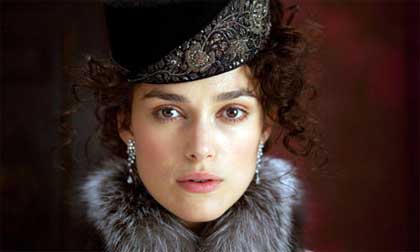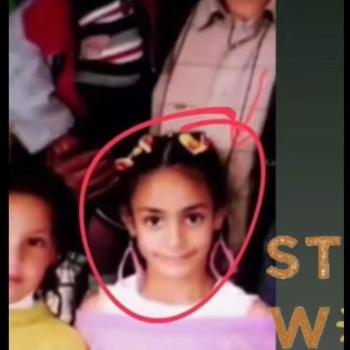The recent remake of Anna Karenina
starring Keira Knightley and Jude Law depicts the entire story as taking place on the stage, although it does not always maintain that consistently. It also focuses more attention on religious elements.
One could perhaps see a key moment in the trouble for the Karenin household as Alexei Karenin’s statement that Anna breaking her marriage vow as being a crime against God. To make God the one to whom one is responsible for fidelity shifts the focus away from fidelity to the other human being that is one’s spouse. If you have to appeal to God in order to find a reason to remain faithful, it indicates that your good reason to be faithful is already gone.
There is a fascinating bit of dialogue near the middle of the movie, in which a young lord says to a man who works his land, “My father owned you – was that by the grace of God?”
The servant answers yes, indicating that his son now lives in the more perilous situation of having to find work, as a result of the new freedoms.
Alexei Karenin finds himself able to forgive Vronsky and Anna, and his soul filled with joy. But that is in the context of Anna being near death, and when she survives, things become complex once again.
It was interesting to watch the movie at a point when I have been rereading Freud’s Civilizations and its Discontents with my students. Freud seems to blur pleasure and happiness in much the same way that characters in the film do. And the movie also illustrates well how civilization and its rules can be at odds with our realizing either one.
 The final dialogue discusses how we know what us right, and the notion that living for the benefit of the soul rather than the belly is better. And there is a hint that a simple life, one informed more by religious principles of forgiveness and compassion than rigid dictates of social morality, is preferable. Pain and sorrow may have been inevitable in the circumstances depicted. But humans acted in such a way as to worsen and compound the harm, with tragic results.
The final dialogue discusses how we know what us right, and the notion that living for the benefit of the soul rather than the belly is better. And there is a hint that a simple life, one informed more by religious principles of forgiveness and compassion than rigid dictates of social morality, is preferable. Pain and sorrow may have been inevitable in the circumstances depicted. But humans acted in such a way as to worsen and compound the harm, with tragic results.
Have you seen this version of Anna Karenina? If so, what did you think of it?














